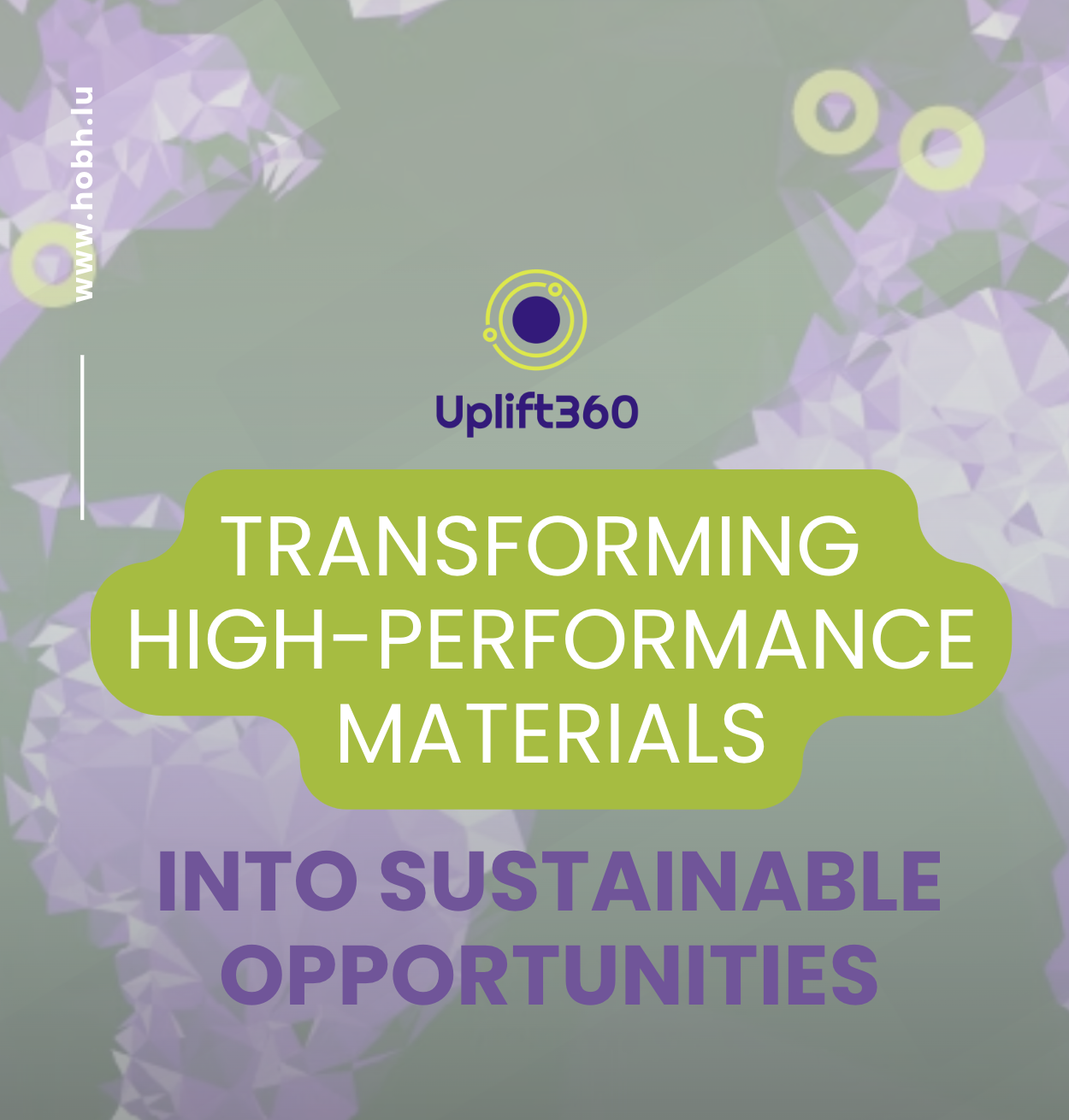In a world where resources are limited and environmental challenges are becoming increasingly urgent, innovation in material management is crucial. It is with this vision that Uplift360 was founded, with a clear mission: to offer sustainable chemical solutions to regenerate high-performance fibers and reduce our dependence on virgin raw materials.
Addressing a Major Industrial Challenge
Composite materials, such as aramids (Kevlar, Twaron) and carbon fiber, are essential in sectors like defense, aerospace, and automotive. However, their recycling presents a significant technological challenge, leading to billions of euros worth of waste being sent to landfills or incinerated each year.
“It is estimated that the value of composites we discard annually exceeds €86 billion,” explains Sam Staincliffe, the co-founder of Uplift360.
To address this issue, the company has developed technologies capable of breaking down resins to extract, recycle and regenerate these fibers, reintroducing them into high-value supply chains.
“Our technology turns waste into value, reduces environmental impact, and strengthens supply chain resilience,” adds Jamie Meighan the co-founder of Uplift360.
Challenges and Opportunities for a Cleantech Startup
Like any deep-tech company, Uplift360 has had to overcome significant challenges, particularly in technological development.
“Developing a technology that doesn’t yet exist is a massive challenge. We had to start from an idea, turn it into a functional solution, and then scale that to pilot production,” explains the team.
Moreover, finding investors for a company operating at the intersection of chemistry, defense, advanced materials, and cleantech was not easy.
“Our sector didn’t fit neatly into traditional investment theses, but today, these fields are converging rapidly, and demand is stronger than ever.”
Choosing House of BioHealth: A Strategic Decision
Based at House of BioHealth, Uplift360 stands out due to its unique positioning in an ecosystem historically focused on HealthTech. This strategic choice is based on several key advantages: infrastructure adapted to applied science startups, access to scalable laboratories, and a dynamic support network.
“We chose House of BioHealth because it offers scalable labs, a strong support network, and a vision that now extends to integrating cleantech and chemical startups,” says Sam Staincliffe.
Although specialized in sustainable chemical solutions, Jamie Meighan and Sam Staincliffe, the founders of Uplift360, share common challenges with other startups at House of BioHealth, particularly in scaling scientific innovations.
“We may be the only ones in our field here, but all lab-based startups face similar challenges. It’s a real asset to have neighbors to exchange ideas with and share resources.”
Measurable Impact and Promising Prospects
One of Uplift360’s most significant breakthroughs is the regeneration of aramid fibers used in personal protective equipment and aerospace applications.
“Being able to regenerate these materials allows the defense and security sectors to reduce their reliance on virgin materials. It’s a radical shift in terms of sustainability, cost, and supply chain security.”
Uplift360’s model is based on the principles of the circular economy.
“Our process is circular by design. We adhere to two fundamental principles: reducing waste and keeping resources in circulation for as long as possible. This not only helps us limit our carbon footprint but also lowers our costs.”
Luxembourg: A Strategic Hub for Cleantech Innovation
Uplift360’s decision to establish itself in Luxembourg is no coincidence. The country offers a favorable environment for circular economy innovations, with strong government support and proximity to major European markets.
“In Luxembourg, you have the opportunity to engage directly with policymakers, ministers, and industry leaders. It’s an environment where innovation is actively encouraged and supported.”
However, to solidify its role as a leader, the country will need to invest more in R&D infrastructure and scaling hubs for sustainable materials.
“For Luxembourg to strengthen it’s position as a leader in the circular economy, greater investment in R&D infrastructure and industrial scaling hubs for sustainable materials will be essential. Many cleantech startups require specialized facilities for chemical and biological innovation.”
A Message to Cleantech Entrepreneurs
Uplift360’s experience offers valuable insights for future cleantech entrepreneurs.
“If you’re entering cleantech, do it your way and without compromise. Take in advice, but don’t let anyone box you into their version of what a founder should be. Take risks and build something meaningful to you.”
The team also shares a crucial lesson on resilience and adaptability:
“The Zen master was right: what seems bad isn’t always bad, and what seems good isn’t always a victory. A failed deal, a delayed project, a tough decision—these can all turn out to be exactly what you needed. The key is to keep moving forward, adapt, and trust in your mission.”
With a strong vision and the right ecosystem, like that of House of BioHealth, today’s innovations can truly transform the industries of tomorrow.
